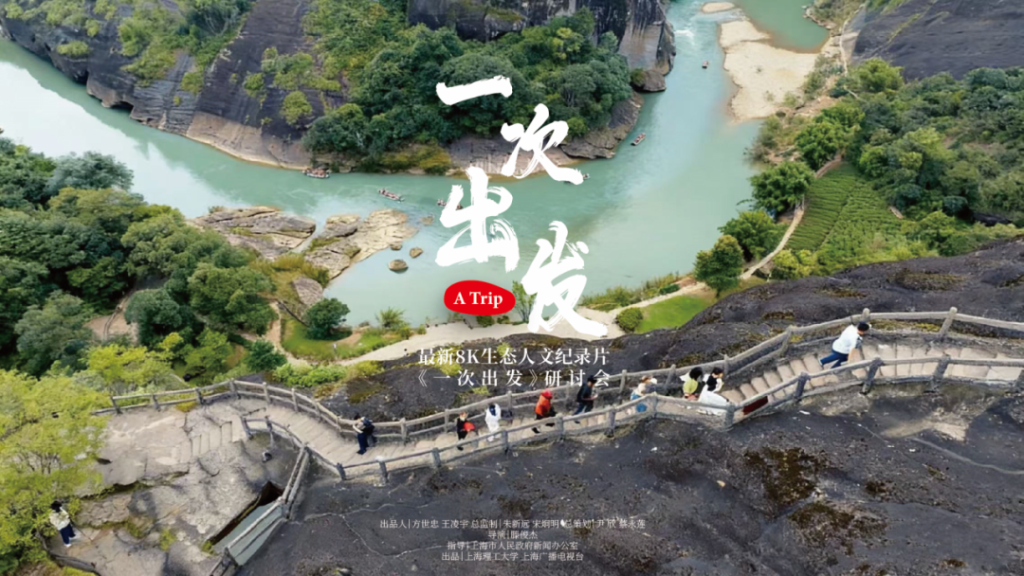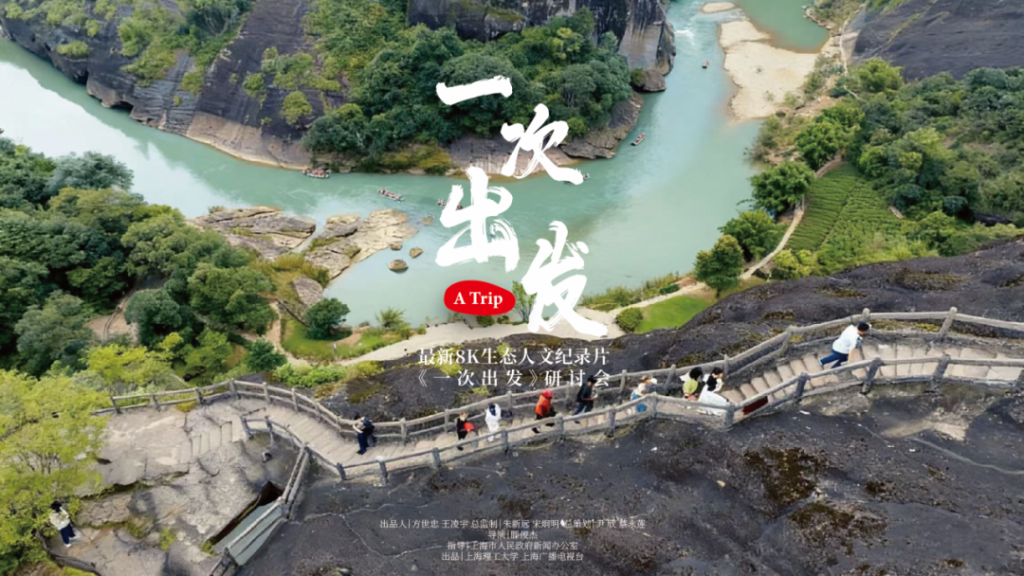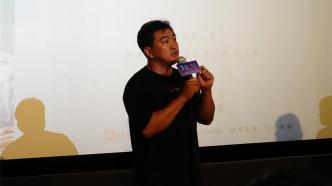
Following the release of the comfort women documentary "Twenty-Two" in 2017, which attracted the attention of countless "tap water", director Guo Ke once again focused his camera on the birth, aging, illness and death of people. The new work "The Future Is Long" will be released nationwide on June 15, 2024. The film is set against the background of "hospice care" (palliative care). Through a narrative method that combines documentary and plot, it gently observes the end of life and the continuation of love.
On June 10, director Guo Ke brought the film to Shanghai for a roadshow, sharing with the audience his thoughts and insights on the "last journey" of life.
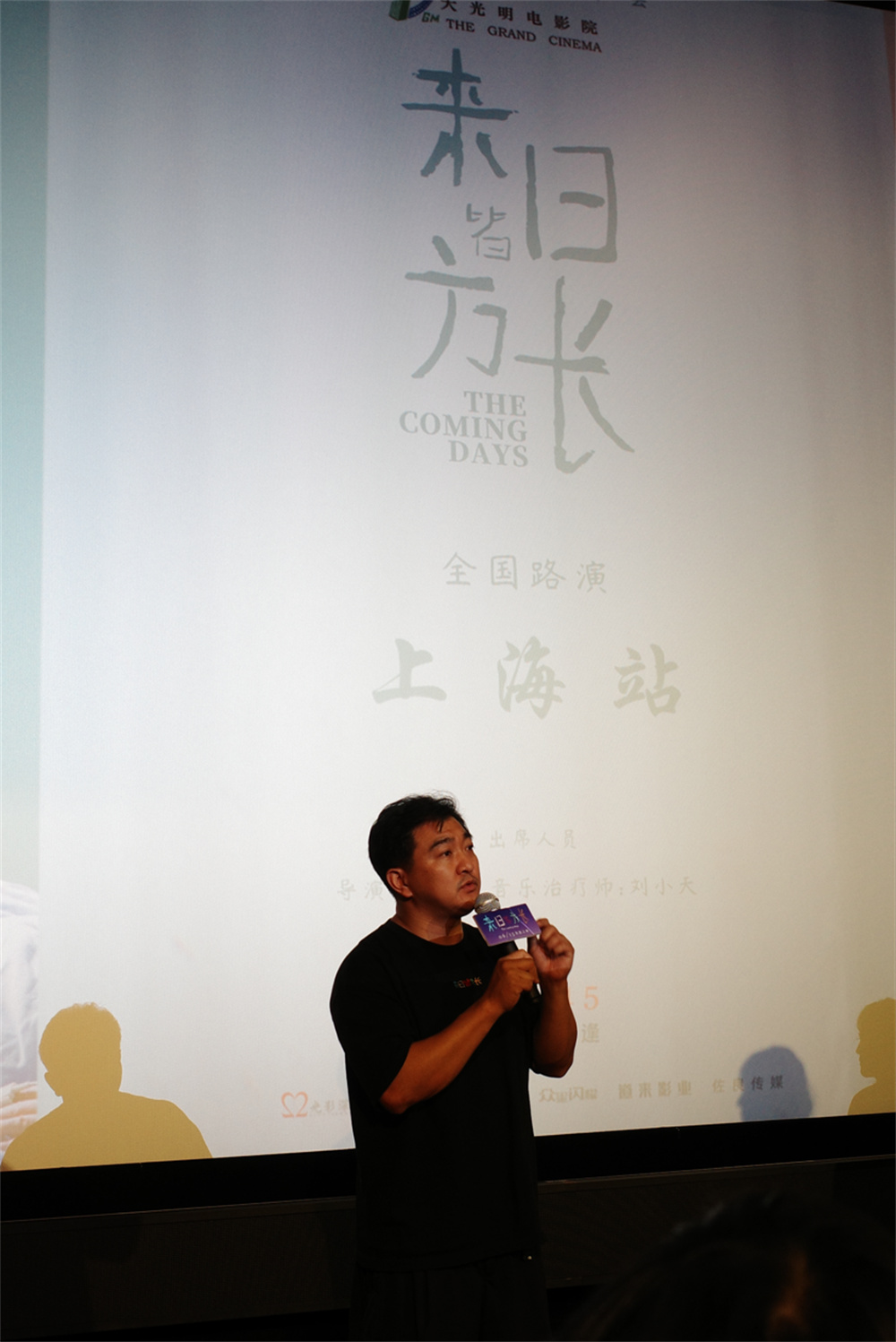
Director Guo Ke
The film tells the story of Uncle Wang, who is over 70 years old and is in the dying stage due to illness, but his love for his family has not stopped with the end of his life. Even after his death for many years, his love still surrounds his family and has never disappeared. This is a story about the transmission of love and life, and the warmth of family affection can transcend time and space.
The film originated after filming "Twenty-Two". Guo Ke talked about how he always had a deep affection for the elderly because of his upbringing. He grew up with his grandmother and had many regrets when she passed away. In the years of filming documentaries with many elderly subjects, the emotions about death were not well digested and processed. Therefore, Guo Ke hoped to create such a film to "explore the relationship between the people who remain in the world and the deceased relatives after their relatives have left this world. We think that 'there is a long way to go' is a more appropriate description."
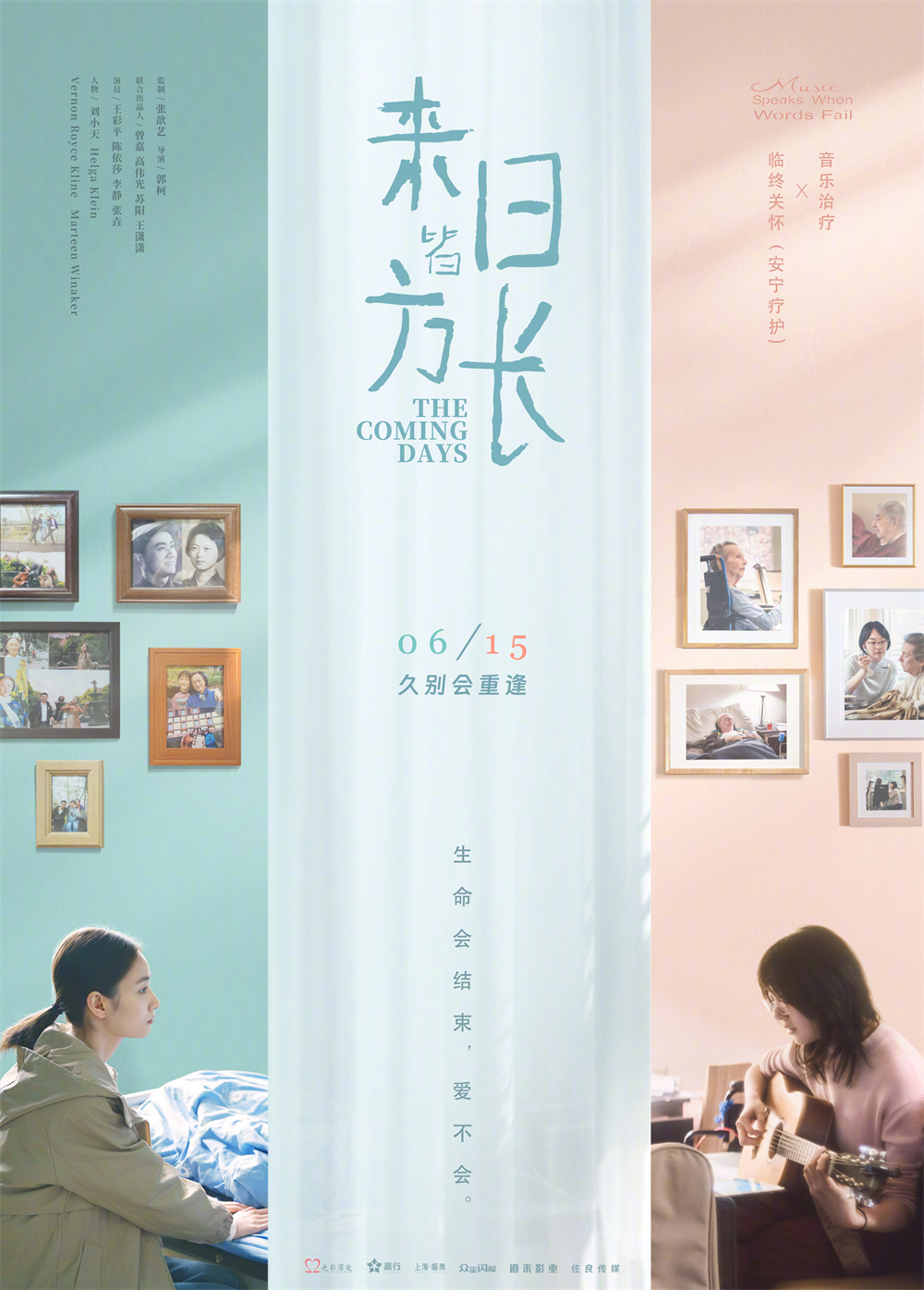
Poster of "There's a Long Way to Go"
In the film, fictional plots and realistic documentary materials appear alternately, and the audience will blur the line between reality and fiction. The plot part takes an ordinary family in Chengdu, China as the starting point, showing the changes of the whole family before and after the death of the elderly. The documentary part follows a Chinese music therapist working in a hospice in the United States, recording the attachment and reluctance of the elderly to their family in the last moments of their lives. Different countries, different lives, same emotions, documentary and fiction complement each other, and together tell us a story about life and love.
Guo Ke talked about the casual way he took when filming The Future Is Long. He said frankly: "We are more casual. This film doesn't even have a script, only a text reference." Unlike the habit of filming according to the script in the past, this time he chose to "shoot according to his feelings" to make the film closer to reality and life. Of course, Guo Ke also revealed another part of the reason, which was that the overseas filming was interrupted by the epidemic, so he switched to filming a feature film.
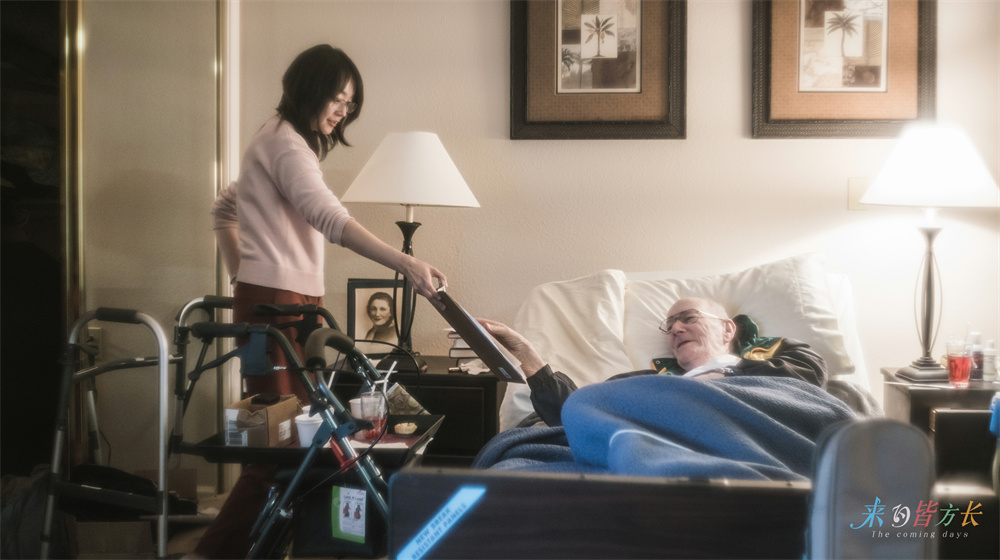
Stills from The Future Is Long
Xiaotian, a music therapist who is the subject of the film, shared his understanding of the film "Hospice Care". He believes that the creation of the film hits the deep understanding of hospice care and music therapy, and localizes it to traditional Chinese families. She said, "The family in the film is a family full of beauty, courage, and calmness. They are like guides, bringing more quality, painlessness, comfort, and no regrets and dignity to the lives of the dying and those around them."
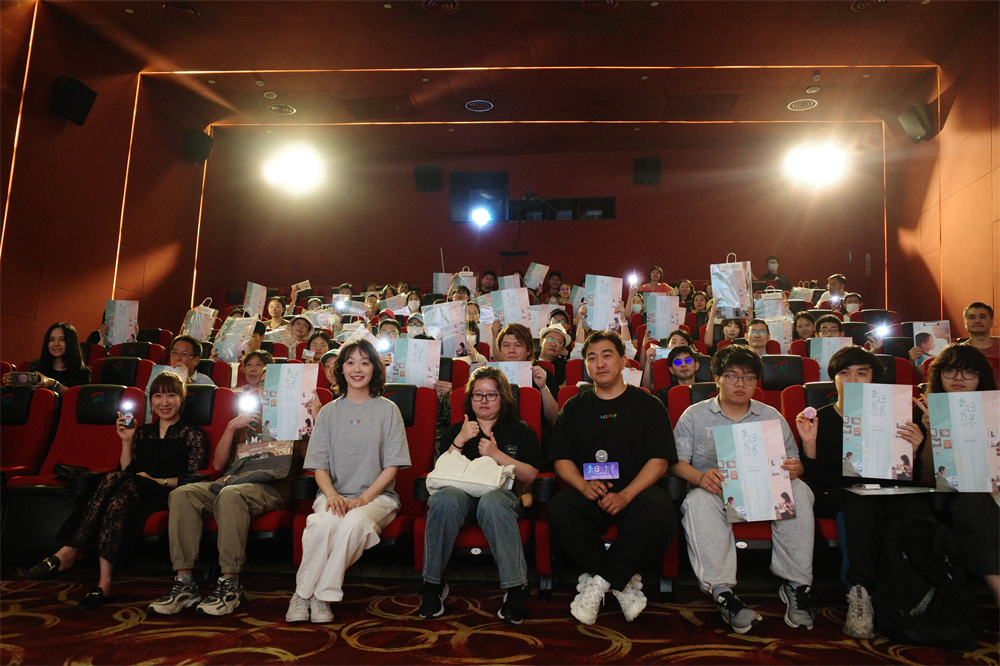
The main creators took a photo with the audience
Guo Ke said at the post-screening sharing session: "This movie is my deep reflection on life, death and family. I hope that the audience will be touched after watching the movie and have a deeper understanding and respect for life." He admitted that he did not want to make a promotional video about "palliative care". "I believe that by bringing this story to you, you will fill this story in through your own experiences."
By leaving blank spaces, Guo Ke hopes to allow the audience to resonate with the characters emotionally, and at the same time have a deeper understanding and respect for life, death and family relationships. "I hope that after watching this movie, the audiences born in the 1990s and 2000s will have some thoughts on family. Although love cannot solve everything, it can solve many problems."
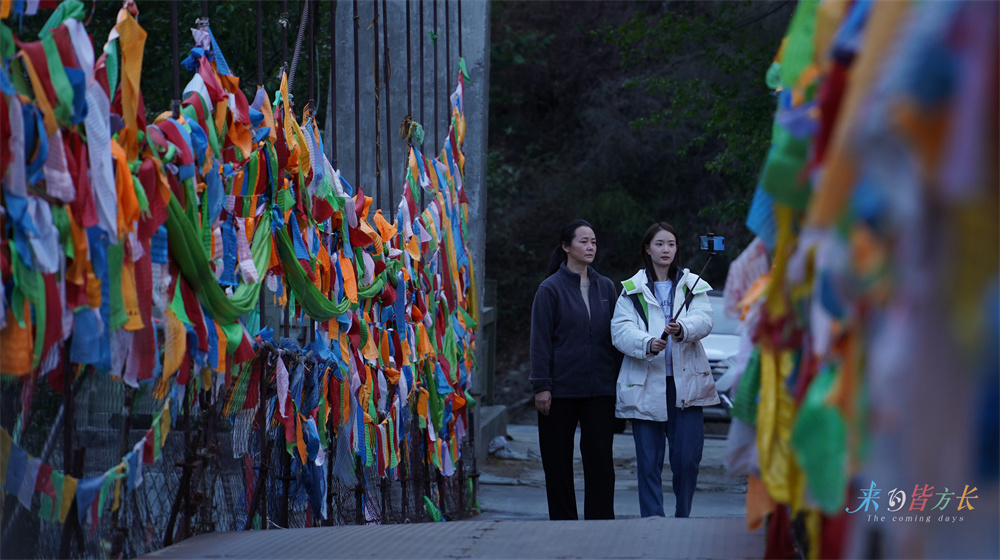
Stills from The Future Is Long
